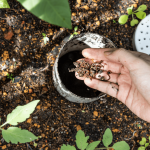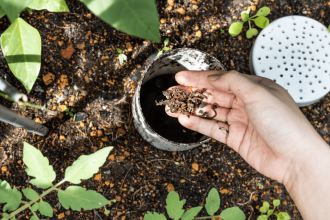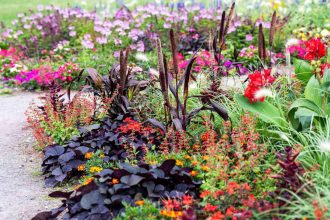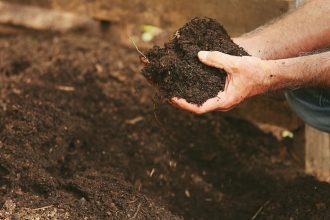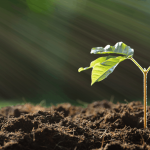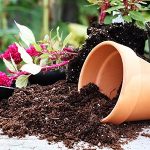In a world where sustainability and environmental awareness are becoming increasingly important, the use of organic fertilizers is gaining popularity among gardeners and farmers alike. But before you jump into using these natural alternatives to synthetic fertilizers, there are some key factors to consider. From understanding the benefits and drawbacks of organic fertilizers to learning how to properly apply them, it’s vital to know what you need to know before incorporating them into your gardening routine. Let’s delve into the world of organic fertilizers and explore the ins and outs of their use.

Understanding the Benefits of Organic Fertilizers
Organic fertilizers are derived from natural sources such as plant materials, animal waste, and minerals. These fertilizers provide numerous benefits for both plants and the environment. Here are some key advantages of using organic fertilizers:
- Slow Release of Nutrients: Organic fertilizers release nutrients slowly over time, providing long-lasting nourishment to plants.
- Improvement of Soil Structure: Organic fertilizers help improve soil structure by increasing its ability to retain water and nutrients.
- Promotion of Microbial Activity: Organic fertilizers stimulate beneficial microbial activity in the soil, leading to healthier plants.
- Reduction of Chemical Runoff: Using organic fertilizers can help reduce the risk of chemical runoff into water sources, protecting the environment.
Overall, organic fertilizers offer a sustainable and eco-friendly way to nourish plants while promoting soil health. Consider incorporating organic fertilizers into your gardening routine to reap their many benefits.
Different Types of Organic Fertilizers and Their Uses
Organic fertilizers are a great natural alternative to chemical fertilizers, providing essential nutrients to plants without harmful synthetic ingredients. There are various types of organic fertilizers, each with unique benefits and uses in gardening and farming.
1. Compost
Compost is a popular organic fertilizer made from decomposed organic matter such as kitchen scraps, yard waste, and manure. It enriches the soil with nutrients, improves soil structure, and promotes healthy plant growth. Use compost as a top dressing or mix it into the soil before planting.
2. Fish Emulsion
Fish emulsion is a liquid fertilizer made from fish byproducts, rich in nitrogen and other essential nutrients. It promotes strong growth and is suitable for most plants, especially leafy greens and vegetables. Dilute fish emulsion with water according to the instructions and apply it as a foliar spray or soil drench.
How to Properly Apply Organic Fertilizers to Maximize Results
Organic fertilizers are a great way to nourish your plants naturally and improve soil health. To maximize the results of these fertilizers, it’s important to apply them properly. Here are some tips to help you get the most out of your organic fertilizers:
- Read the labels: Before applying any organic fertilizer, make sure to carefully read the instructions on the label. This will help you understand how much to apply and when to apply it.
- Choose the right fertilizer: Different plants have different nutrient requirements, so be sure to select an organic fertilizer that is suitable for the specific needs of your plants.
- Apply at the right time: Organic fertilizers work best when applied at certain times during the growing season. Consider applying them in the spring before planting or in the fall to help prepare the soil for the next growing season.
By following these tips and properly applying organic fertilizers, you can ensure that your plants receive the nutrients they need to thrive and produce a bountiful harvest.
Tips for Making Your Own Organic Fertilizers at Home
Are you looking to make your own organic fertilizers at home? It’s easier than you think! By using natural ingredients from your kitchen or garden, you can create nutrient-rich fertilizers that are safe for your plants and the environment.
Here are some tips for making your own organic fertilizers:
- Compost: Start a compost pile in your backyard using kitchen scraps, yard waste, and other organic materials. This will create a rich fertilizer that is full of nutrients for your plants.
- Banana peel fertilizer: Soak banana peels in water for a few days, then use the water to fertilize your plants. The potassium in the peels is great for flowering plants.
- Eggshell fertilizer: Crush up eggshells and sprinkle them around the base of your plants. The calcium in the shells will help prevent blossom end rot in tomatoes and peppers.
| Ingredient | Benefit |
|---|---|
| Manure | Rich in nitrogen and other nutrients |
| Coffee grounds | Acid-loving plants like rhododendrons and azaleas |
| Seaweed | Rich in micronutrients |
By creating your own organic fertilizers, you can save money and reduce your carbon footprint. Give it a try and watch your plants thrive!
In conclusion, choosing to use organic fertilizers in your garden can have a positive impact on both your plants and the environment. By understanding the key components of organic fertilizers, you can make informed choices that promote healthy soil, vibrant plant growth, and sustainable gardening practices. Remember, the benefits of organic fertilizers go beyond just feeding your plants – they help to create a balanced ecosystem that supports a thriving garden for years to come. So go ahead, give organic fertilizers a try and watch your garden flourish!


